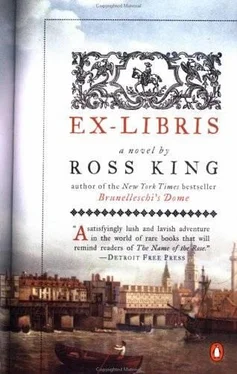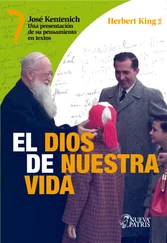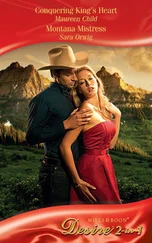'You say it was bound,' he called over his shoulder, 'like one of these.' He swung round, clasping a fat volume to his chest. 'Is that so?'
In the torchlight she could make out the intricate swirls stamped on to the book's leather cover-a series of whorls and curlicues that reminded her, suddenly, of the fanciful lines of Prague Castle's maze garden seen from the upper windows of the Královsky Palace. From its coloured fore-edges the volume looked like one of the Golden Books he had shown her a month earlier. She nodded.
'Exactly like that, yes. The same pattern, I would say.'
'Odd… very odd.' He was twisting a lock of his unkempt beard in his fingers as he studied the tooled leather. 'But you say the pages had not been dyed?' She shook her head. 'Mm,' he said into his stained ruff, frowning, 'how very odd indeed.'
'Did it come from Constantinople, do you think?'
'Oh, it's possible.' His head was bobbing. The idea seemed to excite him. 'Yes, it might have done. One doesn't judge a book by its binding, of course. But what you describe is a Muhammadan decoration known as rebesque or arabesque, which was used by the bookbinders of Istamboul. There were a dozen such books in the library, but this one that you describe, hmmm…'
He had opened the book and was thumbing slowly through its purple leaves, through pages that she remembered him saying had been made from the skins of unborn calves, sometimes as many as fifty per volume. Vellum, it was called. The calves were stunned and carefully bled, then flayed of their delicate hides. A lost art, he had claimed.
'But what could it be?' She was watching his face, wondering if he was telling her everything he knew. 'Was it something of value, do you think?'
He shrugged his narrow shoulders and laid the volume carefully aside. 'Oh, it could be anything-anything at all. And, yes, I should think it was of value. Perhaps of considerable value. Especially if it came from Constantinople. Its libraries and monasteries, you understand, were the world's greatest repositories of ancient wisdom.'
He was at his most pontifical now, plucking at his beard and staring glassily into the middle distance. The thumpings of the dancers in the hall were making themselves known through the groined ceiling, but he seemed not to notice.
'In the past few centuries, more Greek and Roman authors have been discovered in Constantinople than anywhere else. Priceless discoveries, mind! The eleven plays of Aristophanes… the seven of Aeschylus… the poems of Nicander and Musaeus… Hesiod's Works and Days … the writings of Marcus Aurelius… why, even Euclid's Elements , for heaven's sake! Not one of these works would survive today had it not been for the scribes of Constantinople. Every last one of them would have sunk without trace. And how much poorer would the world be for their loss!'
She nodded soberly, faintly amused, however, at his eager recitation, which she had heard before. He felt a strong kinship, she knew, with those humble men whose task it had been to collect and preserve documents that came to them from the burning or besieged libraries of Alexandria or Athens or Rome. A task that he no doubt saw himself re-enacting.
'But the Turks-'
'Oh, yes, yes,' he interrupted, 'the Turks. Quite so. A great disaster! How many other priceless manuscripts were lost when the Sultan invaded in 1453? Or, rather,' he added, 'how many priceless manuscripts have not yet been rediscovered?'
She nodded again, feeling the first twinges of a cramp begin to take hold of her stomach. The vault seemed suddenly airless and confined; she could barely breathe. Caulked with tow and oakum, the crates smelled of pitch-an acrid stink that, like so much else these days, made her nauseous on top of everything else. She was reminded of the hold of a ship, of her voyage from Margate to Holland on the Prince Royal seven years ago. She had been seasick then. Now her head ached and swam in exactly the same way. It seemed to revolve in one direction, her stomach in the other, as if she were indeed aboard a stinking, storm-tossed ship.
But she took a deep breath and tried to concentrate on what he was saying. She knew the story well, of course-he must have told it a half-dozen times. When the Sultan Mehmet captured Constantinople in 1453 his men had plundered hundreds of precious manuscripts from the churches and monasteries, even from the Imperial Palace itself. Only a few of these works had ever been recovered, by intrepid agents such as Jacopo da Scarperia, Ghiselin de Busbecq and Sir Ambrose himself. Vilém was both tantalised and appalled by the story of their discoveries-of ancient manuscripts rescued scant days before the merchants who owned them planned to rub out the lettering and sell the parchment for reinscription. What other treasures of ancient learning might be so poised on the knife-edge between destruction and discovery, like the lone parchment of the works of Catullus that had been found-so Vilém had claimed-bunging up a wine barrel in a tavern in Verona?
'… the books of Chaeremon. His treatise on the Egyptian hieroglyphs was mentioned by both Michael Psellos and John Tzetzes, but it has not been seen since-not since the sack of Constantinople. And many other books and scrolls might be found too. We know that Aeschylus wrote more than ninety plays, yet only seven survive, while less than half of the Historiae and Annales of Tacitus still exist, only fifteen books out of an original thirty-and half of those are fragments! Or Callimachus-he wrote eight hundred volumes, of which barely a few scraps are known. Possibly there are even other works of Aristotle himself awaiting discovery in Istamboul. His fame among the ancients rested on certain dialogues-the so-called exoteric and hypomnematic writings-but not one of these texts has been seen or read for centuries.' He paused for a second as his gaze slowly returned to her face. 'And so it was books such as these, you understand, that Sir Ambrose hoped to find in Istamboul.'
She nodded slowly. Sir Ambrose's journeys to Istamboul were the stuff of legend, for Vilém at least. Many of the works that the Englishman brought back from the lands of the Sultan-works such as Aristotle's treatise on astronomical research, the astrologikh d istoriad, a work mentioned by Diogenes Laertius but never before seen in Europe-were, he claimed, among the greatest treasures of the library.
'He acted as one of Rudolf's agents,' Vilém was saying, 'as early as 1606. That was the year when the long war against the Turks finally ended and travel into the Ottoman lands became safer. But Sir Ambrose had travelled to Istamboul even before that, most likely as a dragoman in one of the English embassies. He was said to be on terms with the Grand Vizier himself, and he first gained access to the Emperor through Mehmet Aga, the Sultan's ambassador in Prague. He presented Rudolf with a manuscript of Heliodorus's Carmina de mystica philosophia , a priceless piece of occult learning-it's here somewhere-that was once owned by Constantine VII. Rudolf then sent him forth on his other missions. He negotiated the purchase of certain parchments from the Sultan. Others he found hidden away in the city's bazaars and mosques. And it was in such places,' he said, raising his voice to be heard over the din from above, 'that he discovered the palimpsests.'
'I beg your pardon?'
'Palimpsests,' he repeated: 'ancient parchments whose original texts were rubbed out and replaced by newer ones. Parchment was often reused, you see. It was always in great demand. But sometimes the original texts were not completely erased, or else they would begin seeping back through the reinscription. Sir Ambrose managed to recover them through alchemical means, by reviving the carbon in the original ink. One of them was Aristotle's work on astronomy, the other a commentary on Homer by Aristophanes of Byzantium.' He gestured at the crates ranged before them. 'They, too, are here somewhere. But as for the volume that you saw…' His narrow shoulders twitched. 'As far as I know, Sir Ambrose has not set foot in the Ottoman lands for some ten years, so I have no idea where the text might have come from. Nor which one it might have been.'
Читать дальше












